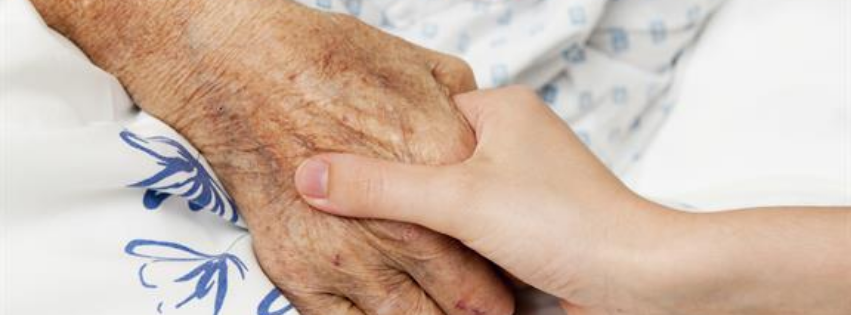Bedrift
Helse Sør-øst RHFSøknadsfrist
10.09.2023Heltid/Deltid
HeltidAnsettelsesform
FastBransje
Offentlig forvaltningUtdanningskrav
PåkrevetArbeidserfaring
ØnskeligAdresse
0372, OSLO
OSLO
Antall stillinger
1karriere-kode
5328082Se her for andre jobber fra Helse Sør-øst RHF
- Oppdatert 25.08.2023

Utgått annonse
Søknadsfristen for denne jobbmuligheten er passert

Helse Sør-øst RHF
PhD position in Forensic Genetics
Offentlig forvaltning
We invite applications for a three-year full-time PhD position within the Forensic Genetics Research Group, situated at the Department of Forensic Sciences, Oslo University Hospital (OUS).
The position is available from October 2023 and the candidate will be based at the Section of Forensic Biology (OUS, Rikshospitalet).
We are looking for a highly motivated candidate to join our team for 3 years.
About Us
Our group specializes in the application of DNA and RNA technologies within forensics. Our primary focus is the development of innovative methods and tools that aid in criminal investigations and inferences of familial relationships. The group has developed state-of-the-art tools and methods for the interpretation of complex mixed DNA profiles. Another main focus is to increase the understanding of forensic DNA trace transfer and persistence and to improve cell type identification in forensic casework. We also work to improve methods for the forensic analysis of biological material, improvement of forensic DNA database search and match reporting, improving and evaluating new methods for relationship inference, We are closely integrated with the Section of Forensic Biology at OUS, a casework laboratory with about 55 employees. The section performs analysis of biological traces in criminal cases on behalf of the police and judiciary.
Background
A DNA profile can only provide information about the potential identity of the donor; it does not provide information on how or when it was deposited. Thus in many cases, the court is dependent on additional information to link a DNA profile to a criminal act. In court, forensic experts are frequently confronted with questions regarding persistence of biological stains. In these cases knowing how or when the stain was deposited or the type of cellular material present is the essential question. New methods for forensic body fluid detection has been developed; based on elevated expression of target markers in specific cell types or the microbial composition in a specific body fluid. Measurements of degradation of RNA over time has been linked to the time since deposition of a crime scene stain as have changes in microbial composition over time. Also, samples collected from a specific person or location has been shown to have a distinct microbial expression pattern. Taken together these markers show great potential to provide new investigate leads in forensics analysis.
Oslo University Hospital is a workplace with great diversity. We believe this is essential to perform the tasks required of us. Therefore, we pursue diversity among our job applicants and encourage everyone to apply regardless of who you are and what background you have.Kvalifikasjoner:
- Applicants must hold a completed Master’s degree in molecular biology or equivalent and must fulfil the requirements for a PhD position at the University of Oslo (minimum B or equivalent on master thesis)
- It is considered an advantage to have relevant experience with mRNA and/or microbiome analysis and experience in laboratory analysis
- Familiarity or experience with bioinformatics and statistical modelling
- The candidate must be able to work independently, but also as part of a team
- Fluent oral and written communication skills in English
Vi tilbyr:
- A welcoming and professionally stimulating international research environment attached to a casework laboratory
- A working environment with highly experienced and acknowledged forensic scientists
- To work in a multi-disciplinary group with strong experience in forensic techniques, and skilled scientists within bioinformatics and statistics
- Opportunities for national and international collaboration
- Salary according to current agreements
How to apply
The application must include:
- Application letter describing the applicant’s qualifications and motivation for the position
- CV (summarizing education, positions, and academic work, including scientific publications)
- Copies of educational certificates and transcript of records
- Letters of recommendation or names and contact details of 2–3 references (name, relation to candidate, e-mail and telephone number)
- Applicants, who are invited for an interview, may be asked to provide educational certificates, diploma or transcript of records
Bedrift
Helse Sør-øst RHFSøknadsfrist
10.09.2023Heltid/Deltid
HeltidAnsettelsesform
FastBransje
Offentlig forvaltningUtdanningskrav
PåkrevetArbeidserfaring
ØnskeligAdresse
0372, OSLO
OSLO
Antall stillinger
1karriere-kode
5328082Se her for andre jobber fra Helse Sør-øst RHF
- Oppdatert 25.08.2023
